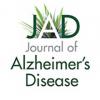19 December 2022
Previous brain injury may be associated with higher risk of FTD
A recent study from the University of Eastern Finland shows that previous traumatic brain injury may potentially affect the risk of frontotemporal dementia (FTD), especially in patients who did not carry a causal genetic mutation. In addition, patients who had suffered a head injury appeared, on average, to develop FTD earlier than others. The researchers compared Finnish FTD patients with patients with Alzheimer’s disease, and with healthy controls.
29 November 2022
Controversial Alzheimer’s Drug Approval Sparks Surprising Impact
When the U.S. Food and Drug Administration gave controversial accelerated approval to the first Alzheimer’s drug in nearly 20 years, it had a surprising impact on attitudes about research into the disease. A survey by University of California, Irvine neuroscientists has found news coverage of the FDA’s decision made the public less willing to volunteer for Alzheimer’s pharmaceutical trials. The study was conducted by the UCI Institute for Memory Impairments and Neurological Disorders, known as UCI MIND.
16 November 2022
Misleading Surrogate Evidence for FDA’s Aduhelm Approval
In a Commentary published in JAD, authors Poul F. Høilund-Carlsen, Mona-Elisabeth Revheim, Abass Alavi , Nagichettiar Satyamurthy, and Jorge R. Barrio have detailed their views questioning the amyloid hypothesis that has dominated Alzheimer research and treatment trials for 30 years. In particular they question the use of amyloid-PET scanning, an imaging procedure that has been used to show whether new therapies are able to reduce cerebral amyloid deposits as this is assumed to inhibit the development of Alzheimer's disease. They contend that this very finding contributed to the FDA’s approval of Aduhelm contrary to its own independent expert panel which looked in vain for evidence of a favorable clinical effect.
2 November 2022
Quality of life in early stages of Alzheimer’s disease from the patients' perspective
Stigma, depressive symptoms and feelings of hopelessness are common problems in the early stages of Alzheimer's disease (AD). A recent study conducted at 21 memory clinics in Spain, published in the Journal of Alzheimer's Disease, has found that different psychological problems negatively impact patients' quality of life even in a population with a short disease duration and minimal cognitive impairment.
20 October 2022
Tea Consumption Improves Cognitive Function
New research from Qatar University College of Health Sciences (QU-CHS) and the School of Nursing at the University of Pennsylvania has found that higher tea intake is associated with reduced cognitive decline in adults. Dementia is known to affect the quality of life, while cognition-related disorders such as mild cognitive impairment and Alzheimer’s disease are gradually increasing and becoming a global burden. This study, published in the Journal of Alzheimer’s Disease, may shed light on the potential role of tea consumption in preventing cognitive decline.
18 October 2022
UC study: Decreased proteins, not amyloid plaques, tied to Alzheimer’s disease
New research from the University of Cincinnati bolsters a hypothesis that Alzheimer’s disease is caused by a decline in levels of a specific protein, contrary to a prevailing theory that has been recently called into question. UC researchers led by Alberto Espay, MD, and Andrea Sturchio, MD, in collaboration with the Karolinska Institute in Sweden, published the research on Oct. 4 in the Journal of Alzheimer’s Disease.
18 October 2022
High blood pressure speeds up mental decline, but does not fully explain dementia disparities
People with high blood pressure levels face a faster erosion of their ability to think, make decisions and remember information than those with normal blood pressure levels, a new study finds. The researchers traced high blood pressure’s association with declining brain function over years, in data from six large studies that they pooled and analyzed. They show that blood pressure-related cognitive decline happens at the same pace in people of Hispanic heritage as in non-Hispanic white people.
11 October 2022
Blood Levels of ‘Free Range’ DNA May Signal Early Detection of Dementia and Frailty
In a long-term prospective study of more than 600 older participants, Johns Hopkins Medicine researchers say they have evidence that higher levels of cell-free DNA circulating in the blood may signal increased risk of chronic inflammation associated with early signs of frailty and dementia. The findings, published Oct. 11 in the Journal of Alzheimer’s Disease, could advance the search for relatively simple blood tests that detect risk of Alzheimer’s disease and other forms of cognitive decline.
26 September 2022
A nutritional supplement to support the management of Alzheimer’s disease
A new study, titled ‘Re-MIND’, from the Nutrition Research Centre Ireland (NRCI) at South East Technological University (SETU) finds that patients with Alzheimer’s disease who consume a nutritional supplement containing fish oil, carotenoids and vitamin E benefit from targeted nutritional intervention. The authors conclude that this supplement formulation should be considered in the overall management of Alzheimer’s disease.
26 September 2022
The Cable Study: Regular Physical Activity May Help Fend Off Alzheimer’s
Regular physical activity more than 2 times a week has a positive effect on AD by modulating the effect of preclinical amyloid – in 918 northern Han participants without dementia, according to the CABLE study by researchers at Fudan University and Qingdao University. Researcher investigated participants' physical activity habits and assessed their overall cognitive function and cerebrospinal fluid (CSF) biomarkers.
















